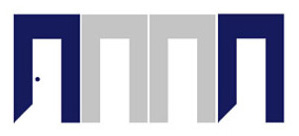Many ideas have been developed on what makes us different from the rest of the animal kingdom. One by one, those ideas have been discarded. However, there is one that has prevailed since the beginning of our history. It is our extraordinary ability, not only to acquire knowledge but to do it from other people. Socially transmitted information is what has placed us above all other species on the planet. The transmission of knowledge is our greatest power. However, as information grows it can only be transmitted if it is accumulated and organized to make it retrievable. In other words, the thought process of organizing information is and will continue to be vital to our progress.
Classification systems talk about who we are, how we see the world, what are our paradigms. Nonetheless, more fascinating than the now, they portray how we envision the future. Classification of knowledge for retrieval purposes is something done in the present for the future user. This is, perhaps, the most human activity there is.
A lot has been written and said about full-text searches employing computational algorithms and libraries demise. However, those processes do not undermine the relevance of the libraries. On the contrary, they have made them more relevant than ever. Libraries, as we envision them today, have in their hands not only the organization of knowledge, but, most importantly, the responsibility to spread its reach to all corners of our society.
For me, here resides the great value of this program. We are learning, not only how to handle information. We are continuously working to make sure everybody in our communities can reach it.
The most important lessons learned with this Masters is that the handling of information can not be excluded of its context. The organization of knowledge, the use of current technologies, and the planning for future ones should always have an eye on our societies and their needs. I found particularly relevant the courses on multicultural literature. As librarians, we have to be attentive and recognize our diverse world to be able to offer it to our patrons.
An open, curious, methodical mind are, in my opinion, among the most relevant characteristics a committed librarian should develop. For that matter, the courses taken through this program are on target and well supported. I\’d like to add that the enthusiasm that Dr. McCook injects into the History of Libraries course is extremely important to understand that we do not work in the vacuum. Activism is a critical part of our job.
